Tropic Heritage Center Museum – Interesting Utah History
Just a short drive out of Bryce National Park, you can journey to the small town of Tropic, Utah. At first glance, it seems there is not much to this town. With one main street that spans less than a handful of blocks, you will find yourself leaving nearly as soon as you entered. But there is more than meets the eye here – and you can learn about the town in the wonderful Tropic Heritage Center Museum.
The Places Where We Go contains affiliate links and is a member of the Amazon Services LLC Associates Program. As an Amazon Associate, we earn from qualifying purchases at no extra cost to you when you purchase using one of these Amazon links. Read our disclaimer and privacy policy for more information.
Entering The Heritage Center Museum
We tugged on the front door on a June afternoon. Stepping inside, a lady at the front desk gave us a warm greeting and directed us to two rooms where we could view exhibits about the town’s history.
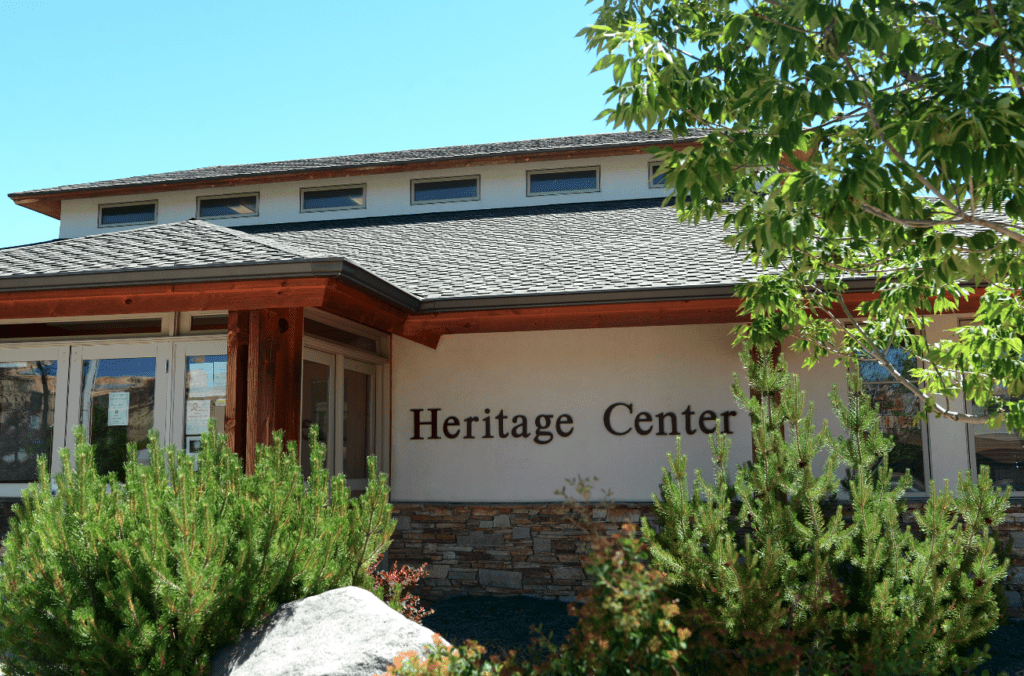
Get Free Weekly Travel News Updates

Stepping Back In Time
The first room was to our left. In here, we encountered information that had been pieced together to tell the geological story of the area. Displays tell the story of the landscape as it is and is likely may have been and changed over the course of millions of years. We learned how geological changes morphed the area into the magnificent landscape that it is today.
We learn about Tropic’s Landscape, weather and life in the high desert.
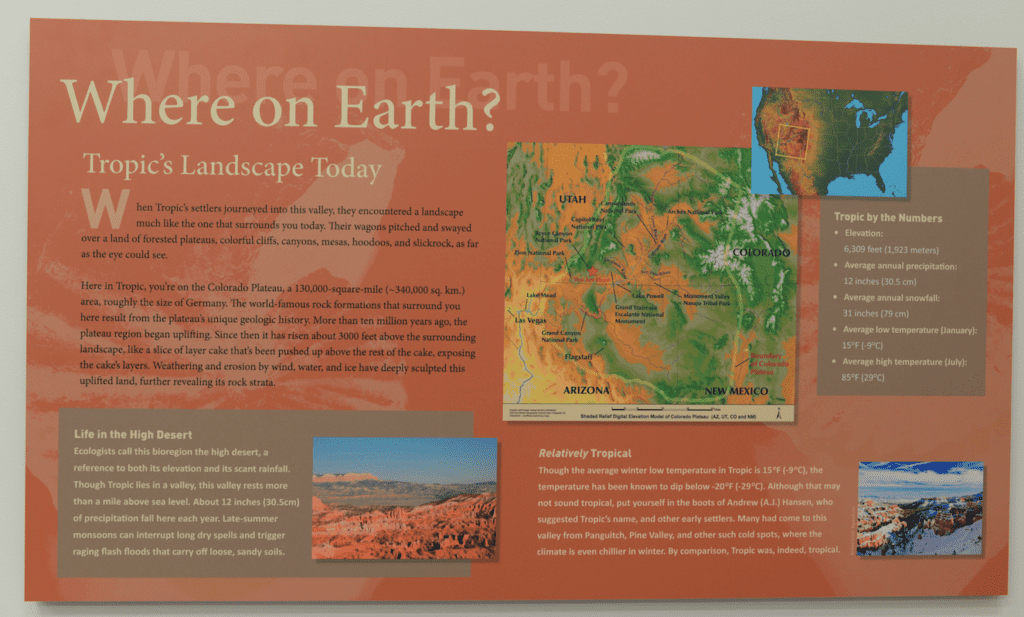
With an average winter low temperature of 15 degrees Fahrenheit, one would likely not refer to this as a “tropical” location. But in the viewpoint of Andrew (A.J.) Hansen who suggested the town name of Tropic, he and other settlers came from areas that were even more chilling in the winter. By comparison, this new land was indeed tropical.
Fossil Displays
We enjoyed looking at fossils. Also on display, were fossil leaf and plant fragments, insects, oysters and ammonites.
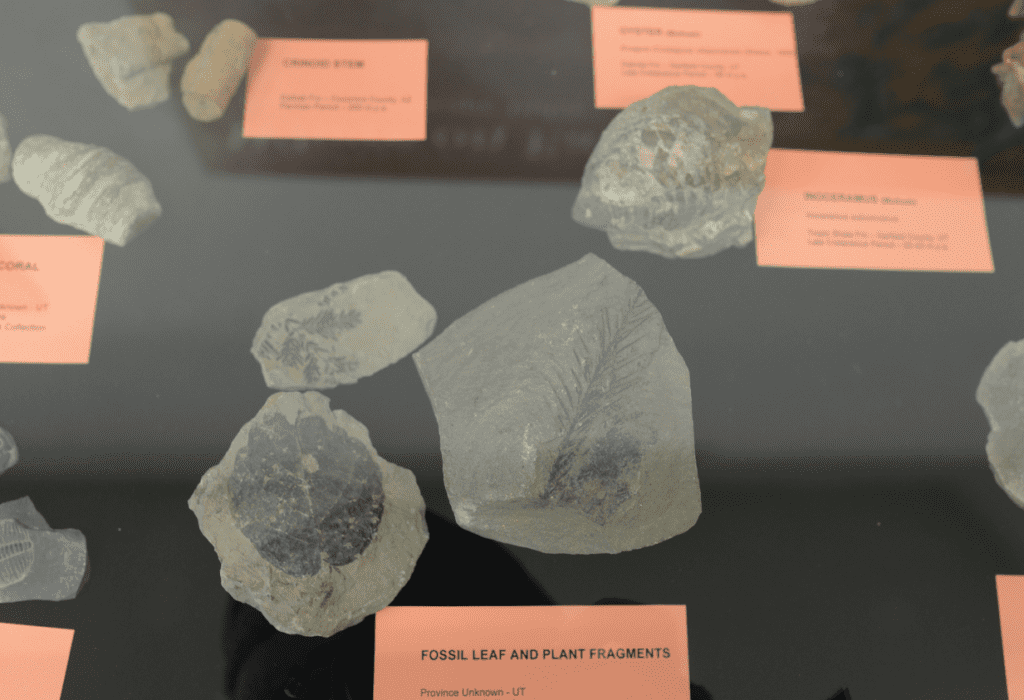
Turtle Fossil
One of the larger fossil displays was that of a fossil turtle. This specimen is dated at 80 million years ago.
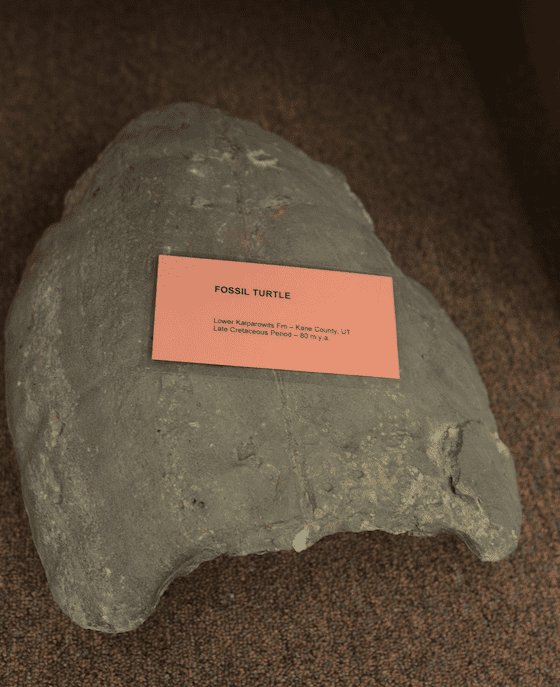
Dinosaur Bones
The museum even has a small collection of dinosaur bones. A display case boasts as its largest specimen, a dinosaur vertebrae found in Kane County, Utah. This bone specimen is dated at 80 m.y.a.
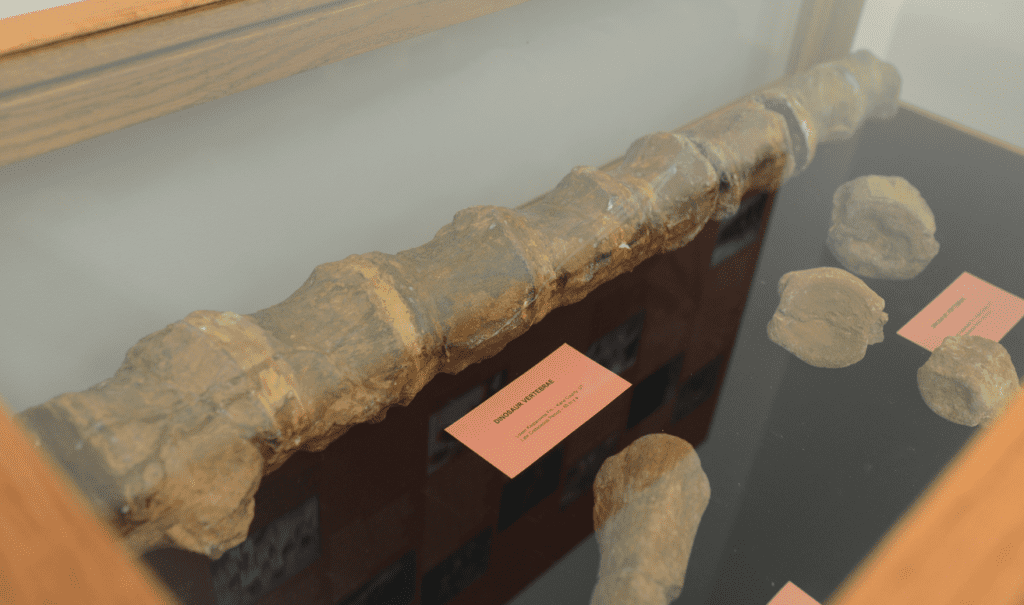
Petrified Wood
Another display case showcased Petrified Wood. One specimen was dated from 225-213 million years ago. You can run your fingers on the slabs that are on display. There are plaques that discuss how the ancient wood turned to stone through the ages.
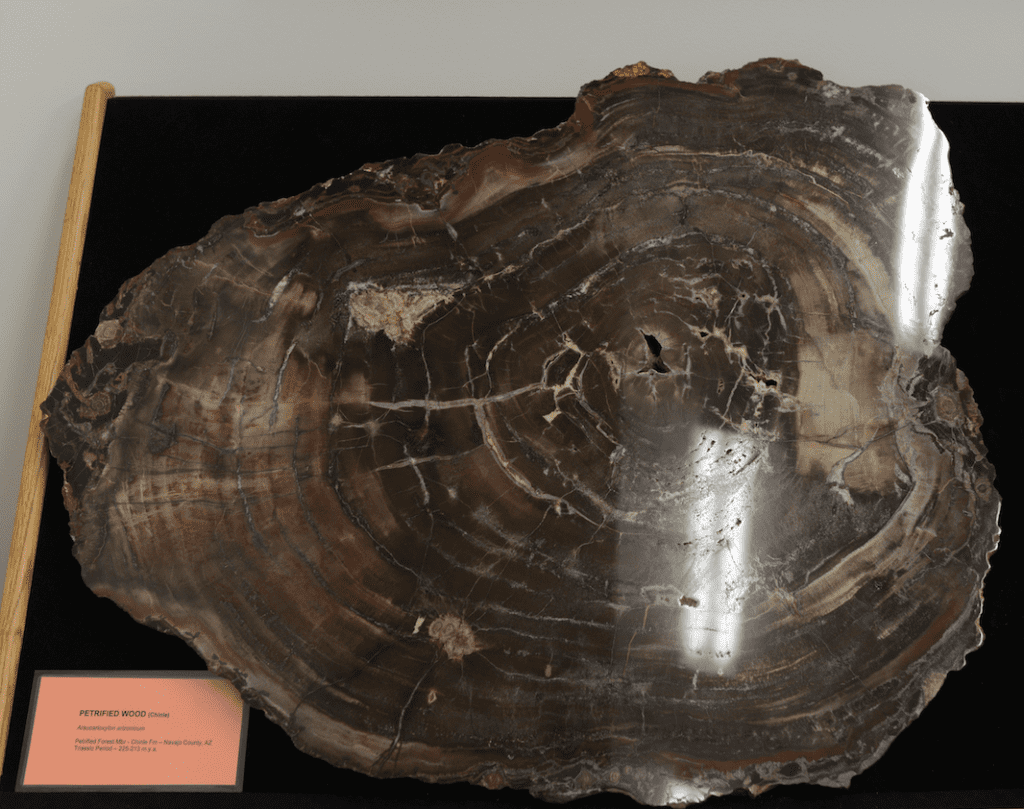
Climate Change Through The Ages
A drawing is rendered from geological evidence showing what the landscape may have looked like 50 million years ago. The “You are here” marker, showed we were at the edge of a large freshwater formation. The broad ancient lake has disappeared over millennia, though the fossil record provides proof that a rich sea life was once a part of the area that is largely desert today. You’ve got to hand it to geologists and their ability to “read” the history of a landscape.
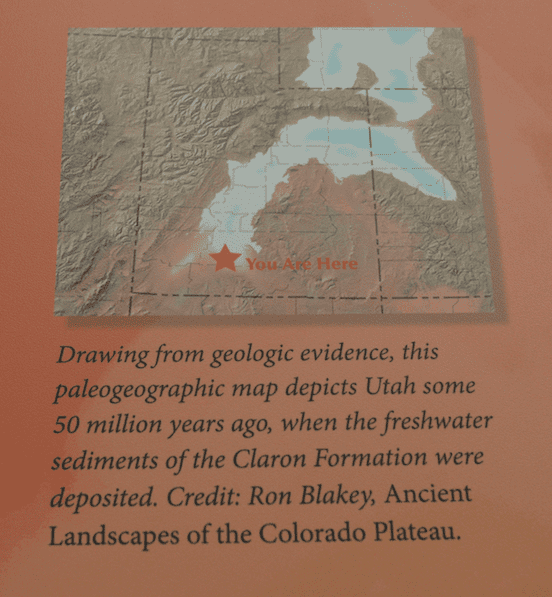
Native People Exhibits – Palute Inhabitants
Among the earliest known inhabitants of this land, are the Palute people who would settle here for the winter seasons. When settlers arrived in the late 1800s, they would trade goods with the local Indians for land.
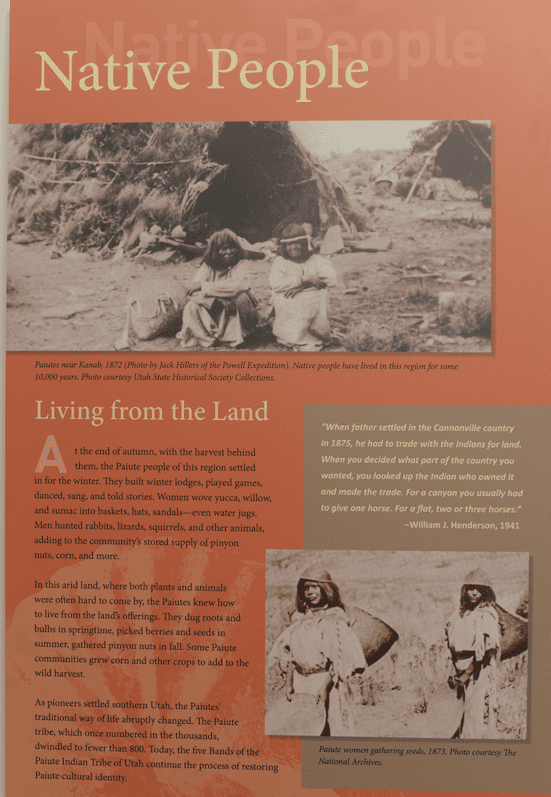
Indian Artifacts
Numerous artifacts of the local Indian inhabitants have been found in the area through digs. Some are on display in the museum. A collection of projectile points shows examples of weapons that were made by the Indians.
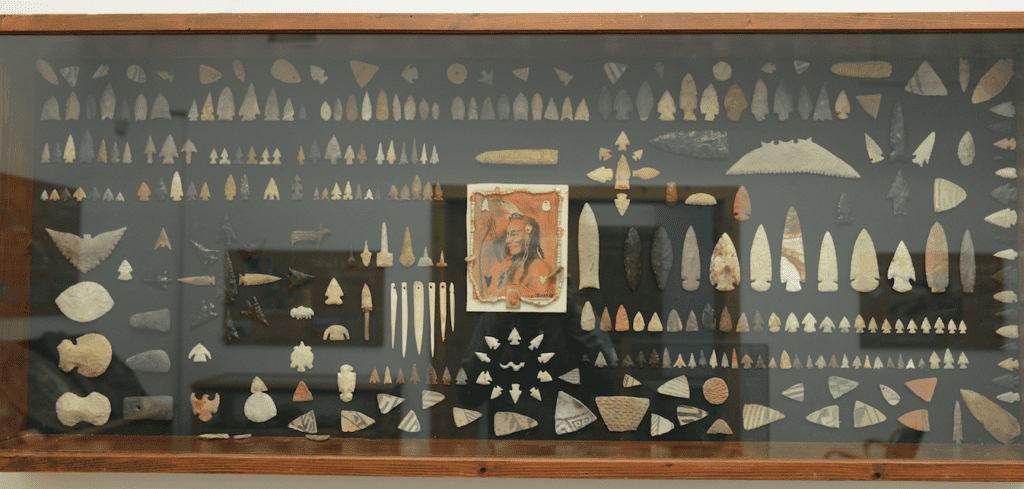
Thousand Year Old Indian History
Pottery is on display, some of which dates back to the A.D. 1000 – 1200. There are historically important specimens and preserved well for viewing today. In addition, the Indian display also has fiber constructed sandals, similarly dated as nearly 1,000 years old.
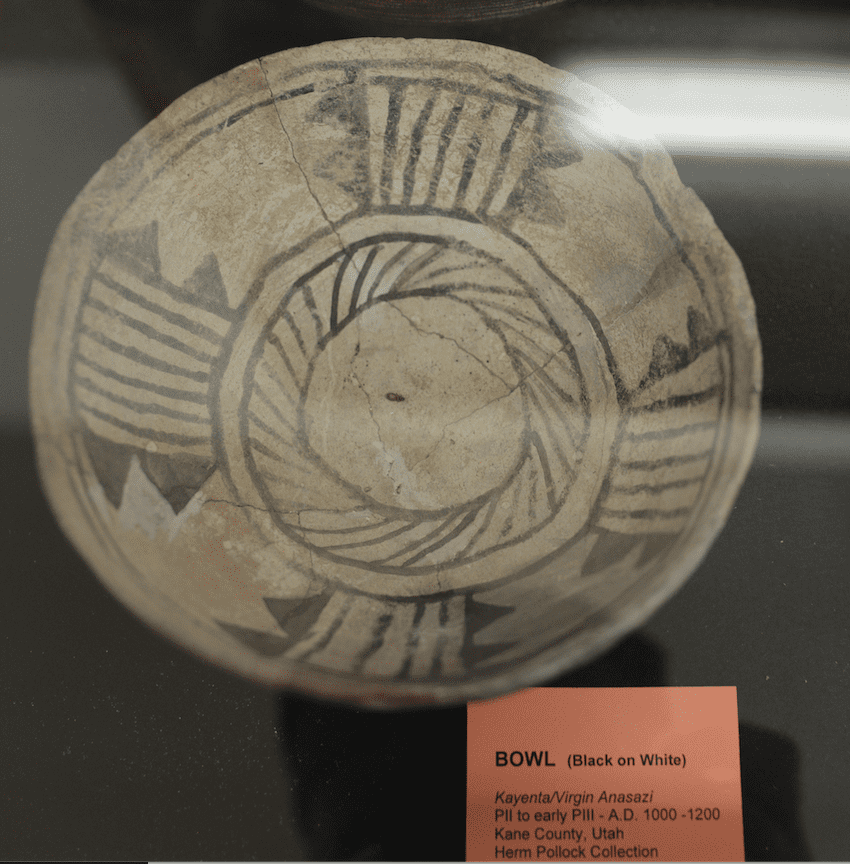
Mining History
After settlers arrived, mining would become a turning point for the local economy. On display are a number of stock certificates from the early mining companies.
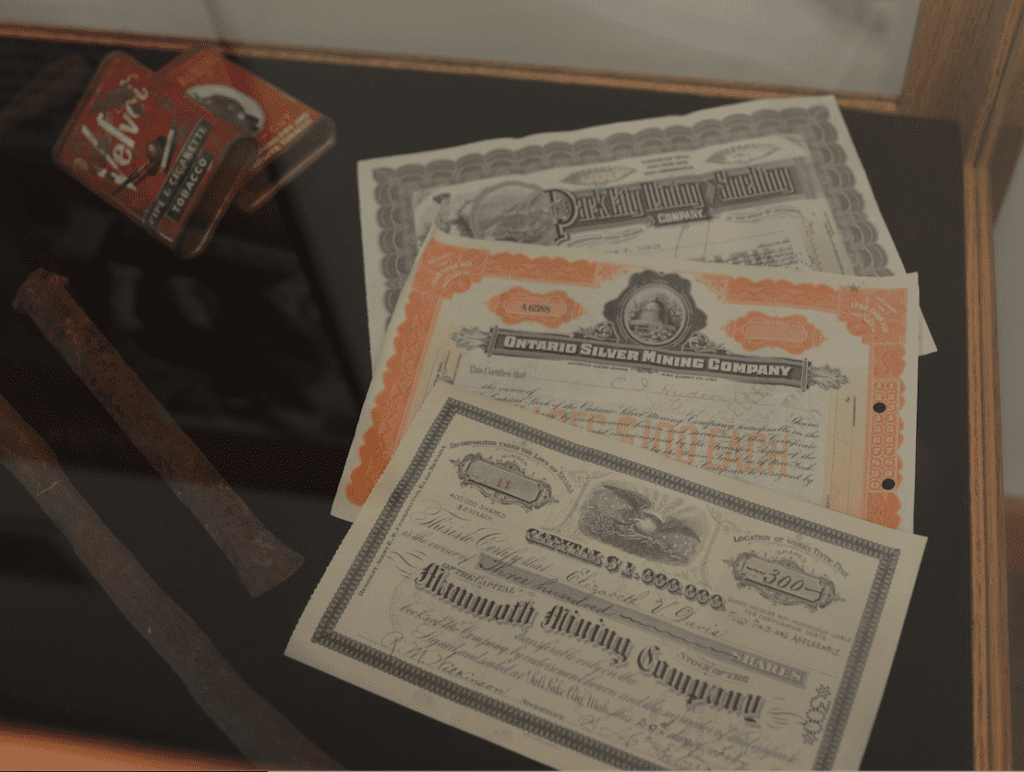
Among the natural elements mined, were coal and bentonite. Coal seams are found in both the Dakota and Straight Cliffs formations. Significant coal mining didn’t ramp up here until the 1930s.
Much of the Henrieville area clay was trucked to the Glen Canyon dam site, which was useful in local dam construction projects. Even gold mining was attempted in the area, but this proved to be an unsuccessful venture.
20th Century History
Stepping out of the room and through the hallway, we entered the second room. This area contained exhibits mainly from the early to mid 20th century.
Bryce Valley High School Dedicatory Prayer From 1955
One display focused on schools in the community, which served a small student population. It was interesting to see a copy of the dedication prior which was used for the high school in 1955. Sadly, just over half a century later, there are no more such prayers as part of our public school environments.
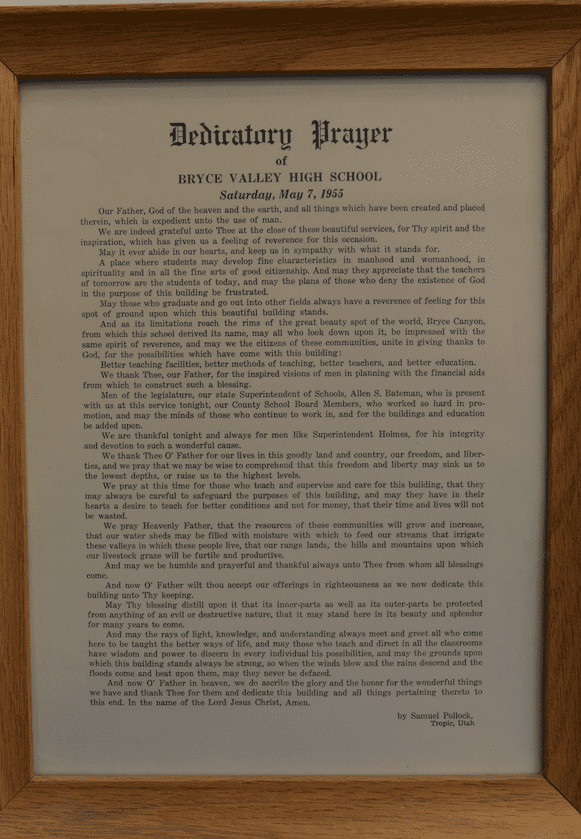
Music & Film
Moving through this room in a counterclockwise direction we viewed an old phonograph and small collection of 78 rpm albums. The display area also has a silent film projector, photographs, and an old Underwood typewriter.
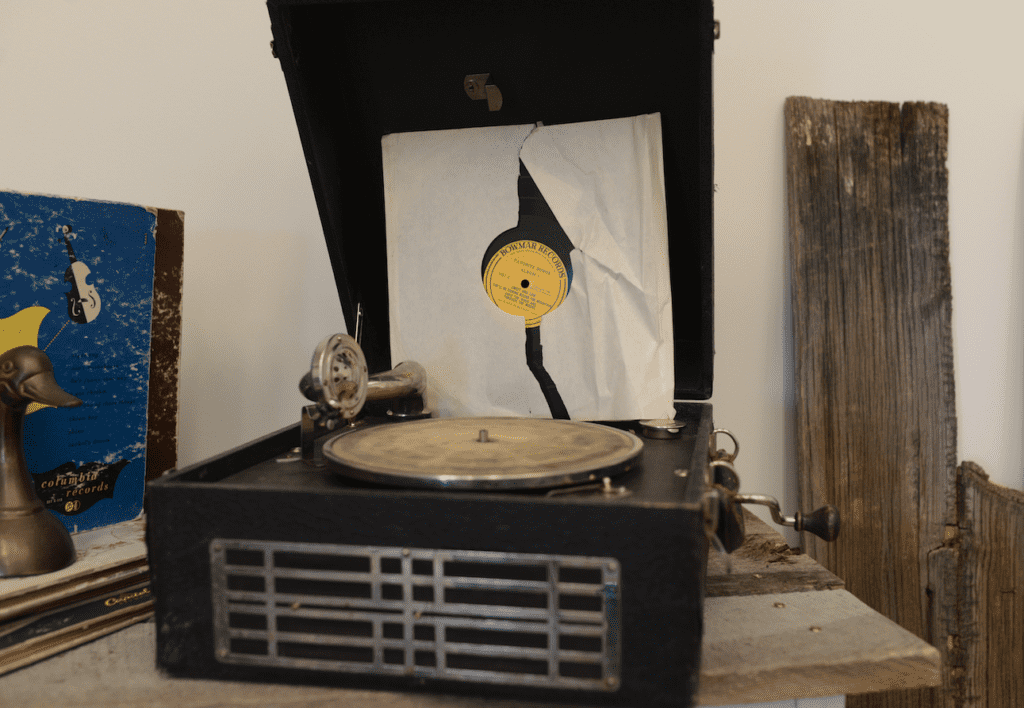
Household Items
There were cleaning implements and a display of an old kitchen. We can often take for granted the conveniences we gain from our modern appliances. You can see an early model washing machine in the museum – this technology has come a long way.
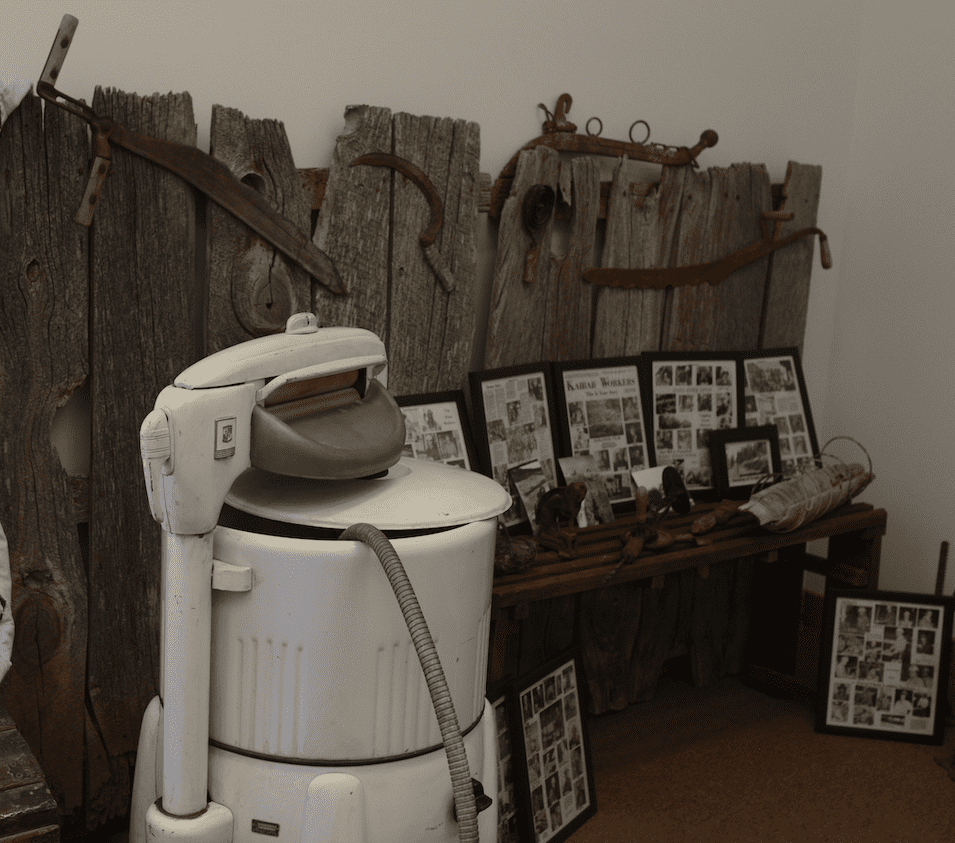
Treadle Sewing Machine
Cearly, clothing was made and repaired as a common household activity. The sewing machine on display reminds us of this household skill that appears to be less common in the modern age.
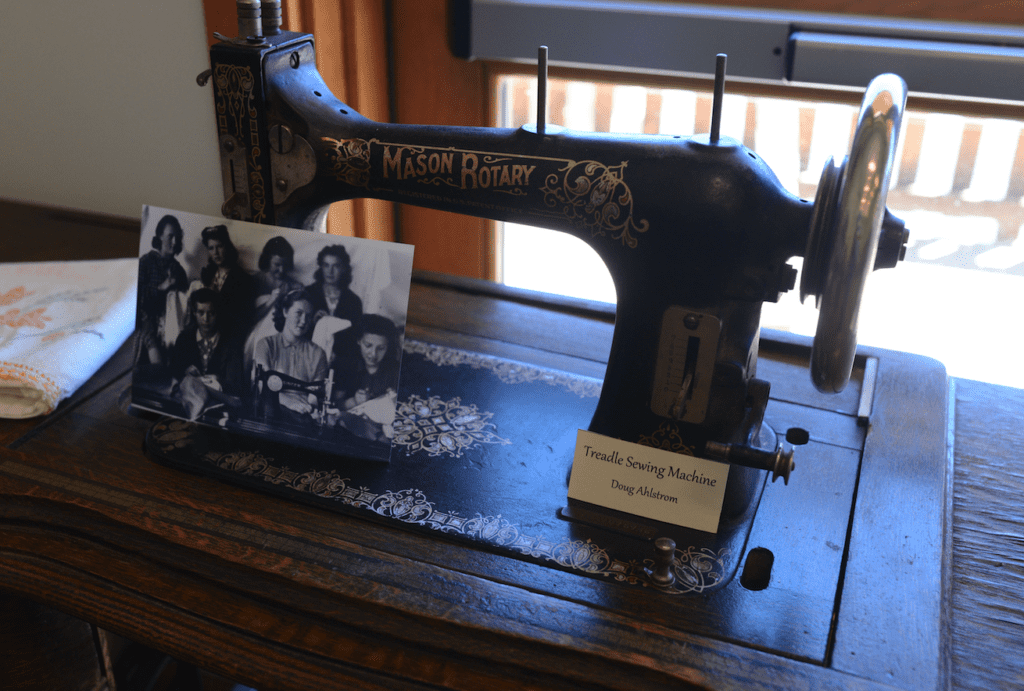
The Early 20th Century Home
Rounding out the housing displays are examples of items from an early 20th century kitchen. Here we saw a Monarch oven, old iron, cast iron kitchen pans, and glassware.
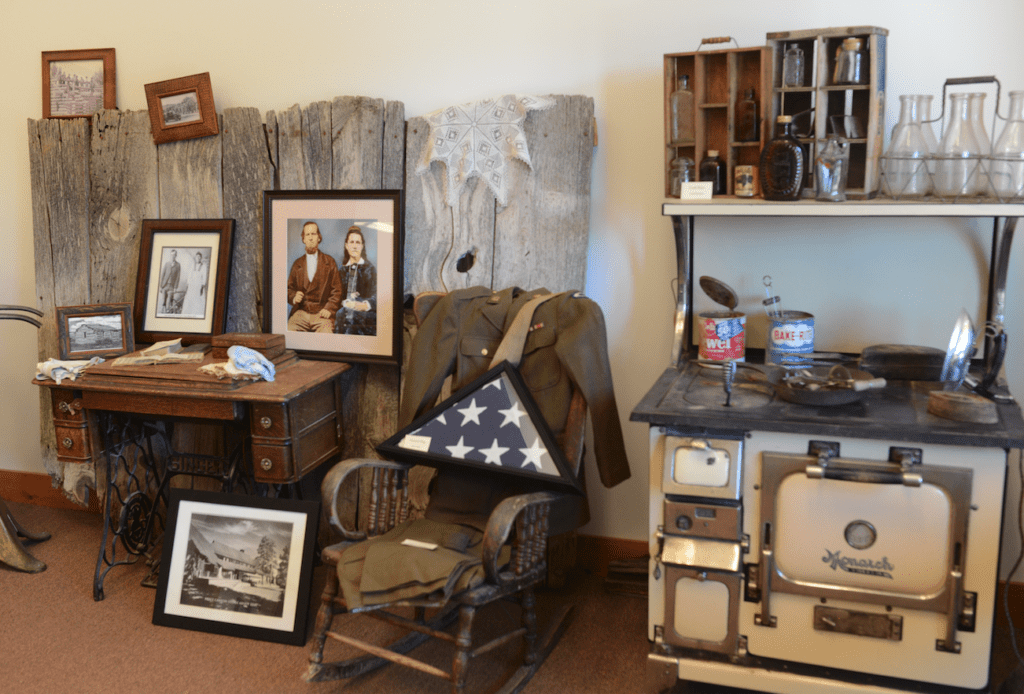
Milk Separator
Today, when we are in need of milk, we just simply run out to the local grocery store and pick up a container of ready to go milk. A milk separator contraption on display is a reminder that once upon a time, processing milk for home use would have required a few more steps.
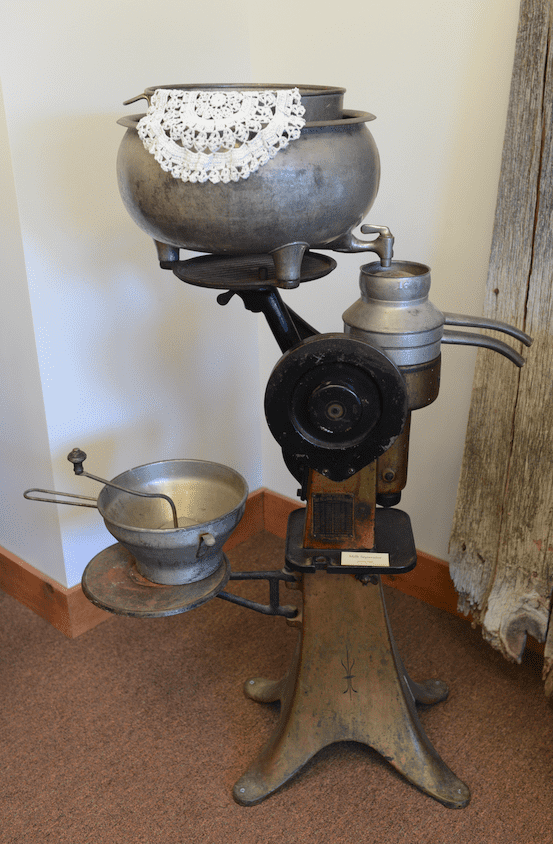
Reed Organ
Completing the circle in the room was an old pump organ and photograph of a lady who had played the instrument at the LDS church.
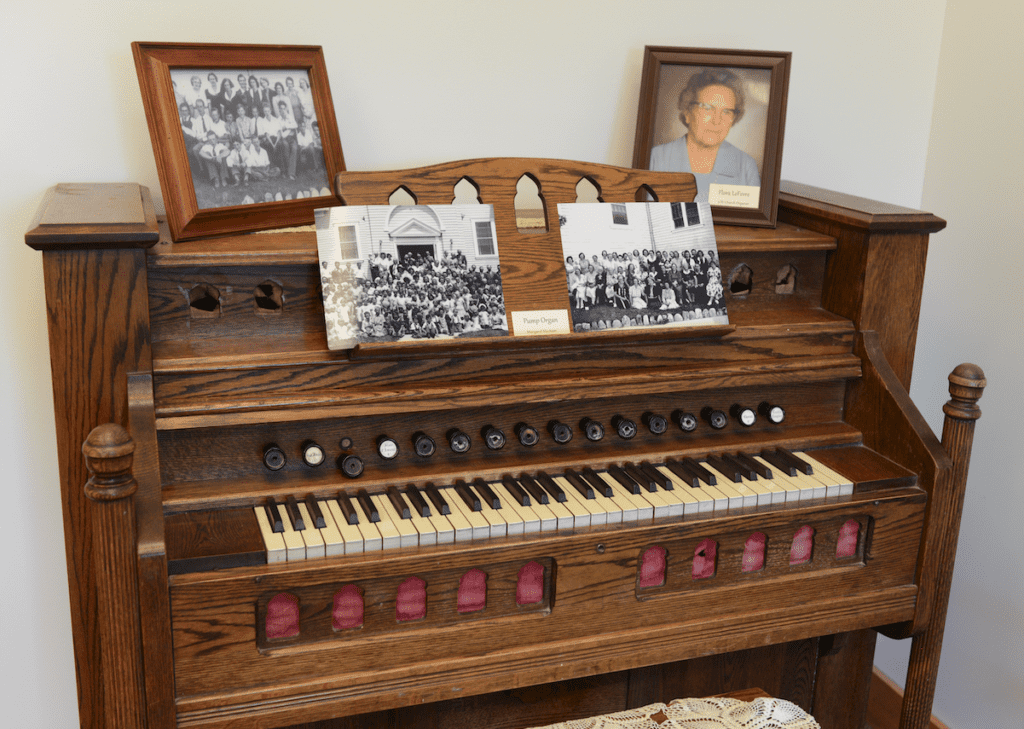
A Short Yet Informative Visit
We weren’t asked to pay a fee. Our visit here was maybe 20 minutes and we appreciated the glimpse of history about this small town.
Veterans’ Memorial Park
Our visit to the museum wasn’t quite over as we exited the entry doors. We took some time to view the displays in the outside Veterans’ Memorial Park. The park was dedicated on November 11, 2016 to local Veterans and Military service members. The stone tablets commemorate those who died in action, prisoners of war, as well as local residents who served their country.
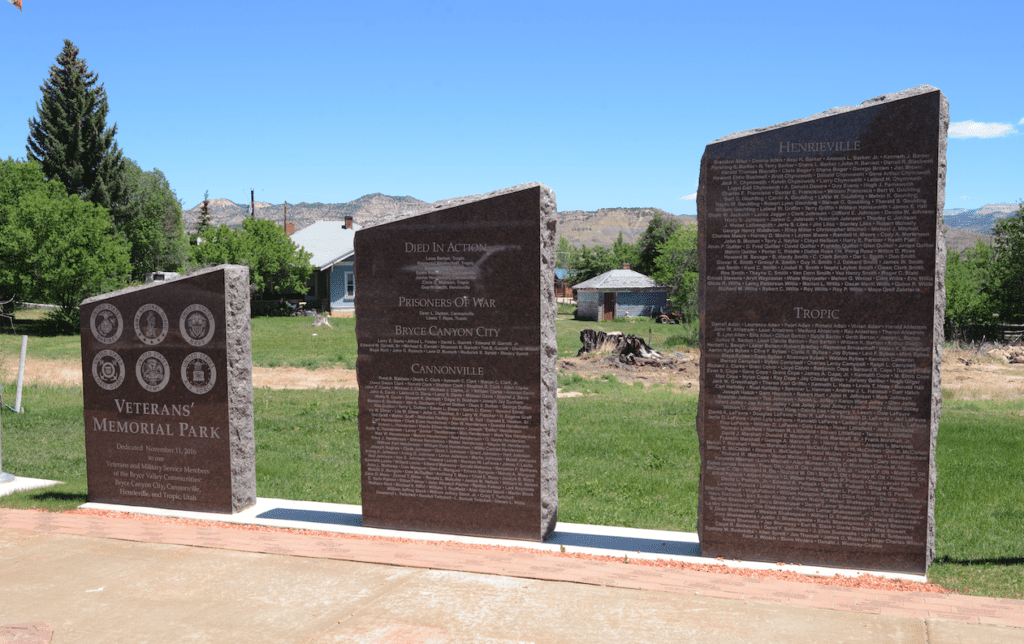
Tropic Heritage Center On The Map
Tropic Utah Map via Google Maps
Tropic Heritage Center Museum Is Worth A Visit
To sum up, you can drive from Bryce Canyon National Park and pass right on through the town of Tropic, Utah. Or, you can take an hour, maybe even less, to wander through the Heritage Museum. If you make the latter choice, you’ll leave with an understanding of a very rich history that has helped shape this area. Yes, there is more than meets the eye in Tropic, Utah.
Find Lodging Near The Tropic Heritage Center Museum
Nearby Places
Bryce Canyon Scenic Drive
Grand Staircase Escalante National Monument
Kodachrome Basin State Park
Mossy Cave
Tropic Utah – Is It Worth Visiting?

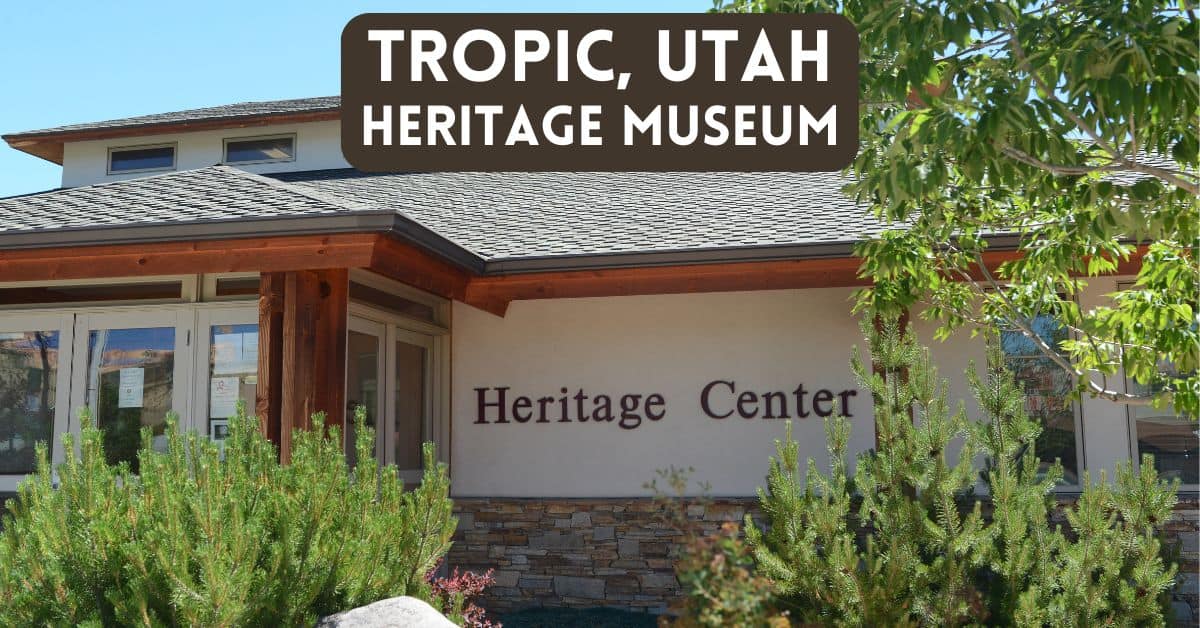
One Comment
Comments are closed.